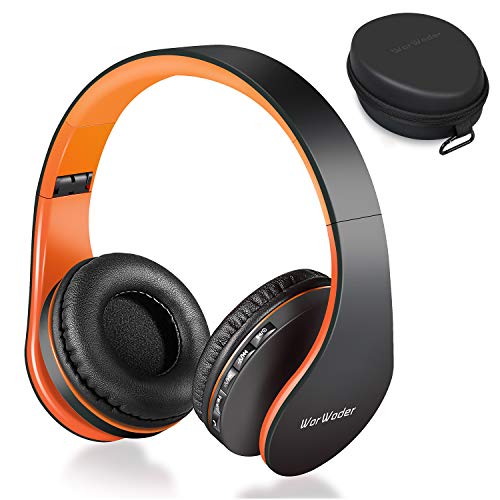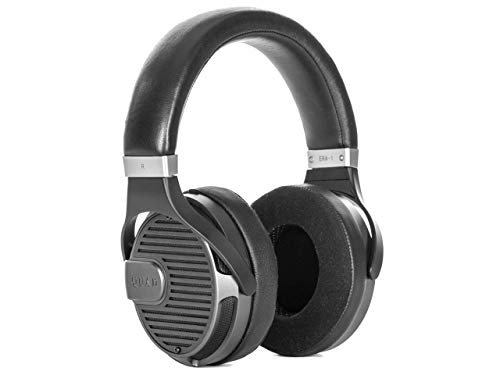15 Of The Most Popular Pinterest Boards Of All Time About Bluetooth He…
페이지 정보
작성자 Victorina Cranf… 작성일24-02-04 08:43 조회4회 댓글0건관련링크
본문
 What to Look For in Bluetooth Headphones
What to Look For in Bluetooth Headphones Bluetooth headphones utilize a wireless communication technology that utilizes low power radio transmission signals to send audio. These signals are converted into analog audio using the built in DACs which then send the signals to headphone drivers to be output as sound waves.
Bluetooth headphones utilize a wireless communication technology that utilizes low power radio transmission signals to send audio. These signals are converted into analog audio using the built in DACs which then send the signals to headphone drivers to be output as sound waves.Before you can connect your Bluetooth headphones sale the headphones must be "paired". The process of pairing establishes an information connection between the headset and parent device.
Audio Quality
Bluetooth transmits audio information using short-range radio waves, eliminating the necessity for cables. Its range is 30 feet or more, which is perfect to use around your home and prevents your music from cutting out when you move around rooms. It also helps keep interference from other Bluetooth-enabled devices to a minimal, so that your headphones aren't overloaded with other sounds which can distract you from listening to the music.
However, Bluetooth was not originally designed to be used for headphones wireless beats audio entertainment. It has a limit on bandwidth that makes it necessary to compress data for music files when transmitted wirelessly. This is fine for phone calls however it can affect the quality of your audio experience.
Some Headphones Wireless Beats are equipped with aptX audio codecs or aptX HD, which removes the need for compression. This creates a more authentic and accurate representation of the original audio file, allowing you to enjoy high-quality music over Bluetooth without losing. Spotify and Apple Music, among others, support these higher-quality Bluetooth codes.
The most reliable Bluetooth headphones will support at the very least an audio codec that is basic, such as SBC however, Headphones Wireless Beats some will have more advanced audio codecs that ensure compatibility with all your listening needs. If you're planning to use your headphones to stream videos from YouTube or Netflix pick a pair that supports aptX Low Latency or aptXHD. This will allow the audio and video to sync, providing an even more immersive listening experience.
The Sony WH1000XM5 headphones are the best Bluetooth headphones for great sound quality. These headphones are a worthy winner of our Product of the Year award and offer a premium experience that rivals cannot match. The noise cancellation is also superior, and the app experience is top-quality. Bowers & Wilkins' Px7 S2 headphones have better audio quality and better design if you're willing to spend more.
Simple to Use
Wireless headphones are a great alternative to wired headphones. Bluetooth is a wireless technology that connects devices like headphones and music players by using radio waves that are short-range. When using Bluetooth the receiver and transmitter must be connected to a compatible source. The source encodes and transmits the audio signal to the Bluetooth chip which then broadcasts it through radio waves to the headphones.
When the signal is received, it is decoded by the headphones' Bluetooth receiver and converted to an analog audio signal that listen to. Then, the headphone's sound amplifier converts the signal to a sufficient voltage level to drive its speakers, which creates sound. Most headphones that work over Bluetooth come with digital-to-analog converters (DACs) to ensure high-quality audio playback.
Modern Bluetooth headphones also come with an integrated headphone amplifier that can boost the output power and reduce distortion. Additionally, the majority of headphones feature a built-in microphone to allow hands-free calls. Some models will also use the Apple-exclusive codec aptX for improved audio quality when streaming movies or podcasts.
Some wireless headphones come with internal storage for data, allowing you to store a few gigabytes of songs to playback easily without the requirement of an external audio device or a connection. This is perfect for people who prefer to listen to a particular playlist or prefer to work out. However, updating and transferring songs stored in internal storage will require the use of an internet connection and, if your music tastes change, you'll have to change the music.
The Bowers & Wilkins Px7 S2 headphones have been upgraded from their 2020 predecessor and are now more premium than ever, but they still provide a comfortable set-up for long listening sessions and an engaging and neutral sound that stands out in a highly competitive class. They offer a long battery life and fast charging, and include aptX Adaptive and aptX HD for audiophiles with devices that support these higher-quality Bluetooth codecs. They are also very affordable, and have a sleek-minimalist design.
Long Battery Life
Long battery life is among the most important things to look for when buying headphones. You want a pair of headphones that can keep you entertained during long flights or during your commute, without the need to recharge.
Most Bluetooth headsets are built to fulfill this promise. The top models in our rankings, such as the Cleer Enduro ANC or the Sennheiser momentum 4 wireless over-ear headphones provide up to 60 hours on charge. In our tests the headphones proved to be an excellent price, with top audio quality and a lengthy list of desirable features at the price of a reasonable amount.
The typical Bluetooth headphone can play for up to 8 hours on a single charge. If you're looking to maximize the number of hours you can listen to music before having to plug them back in it is recommended to choose one that uses high-efficiency charging technology. These types of models usually charge in about 1.5 to 2 hours, while conventional headsets can take up to three or four times more time to charge the same amount of juice.
The kind of Bluetooth headphones you select could also have a major impact on the life of your battery. The two most popular types of Bluetooth headphones are Class 2 and Class 1 headsets. Class 2 headsets typically run on the maximum of 2.5 milliwatts of power while Class 1 headsets can use up to 100 mW of power.
You can also prolong battery life by using Bluetooth headsets that are compatible with your mobile phone. A majority of smartphones, tablets, and computers support Bluetooth connections and you'll be able to find a headphone that will work with your device. You can test compatibility by visiting the manufacturer's website or looking through the manual for your device for more information on how to check compatibility.
In the early days of Bluetooth headphones connections would slack off constantly and pairing was a nightmare and audio quality was the musical equivalent of the old tin bottle telephones you made as a kid. Fortunately, Bluetooth technology has improved and these wireless headsets now offer a great audio experience while providing many features that make your phone or tablet even more useful.
Noise Cancellation
Noise cancelling capabilities are a crucial feature to look for in Bluetooth headphones. The best noise cancelling headphones will block out ambient noise so that you can concentrate on your audio without distractions. Noise cancelling technology is based on acoustic separation, which is the use of a physical barrier such as headsets or earcups to block out sounds from outside. The most advanced headsets use multiple microphones to isolate sound from the listener's ears and head which results in superior audio quality.
Most modern headphones and headsets come with noise cancellation, and the ability to regulate the volume of noise cancellation with built-in controls or through an app. Many headsets and headphones allow you to hear ambient sounds, which can be ideal for commutes or in the office.
The Headphone Audio Profile (HSP) is used to convert the digital audio signal transmitted by the Bluetooth transmitter into analog. The HSP codec converts digital audio signals into an A2DP format. This is then modulated on a Bluetooth UHF carrier and wirelessly sent to the headset receiver. The Bluetooth receiver decodes modulation and then utilizes an integrated DAC in order to convert the A2DP audio signal back into analog audio. The signal is then sent wirelessly to the headset's receiver.
The primary distinction between RF headphones and BT is that RF can be affected by other electromagnetic transmissions, whereas BT utilizes Bluetooth specific frequencies. The most recent Bluetooth 5.0 protocol reduces the impact of interference. However, older models may still be affected by electronic devices that emit electromagnetic signals in the same frequency range.
Bluetooth-enabled headphones are available in various styles and sizes, including the over-ear, circumaural, and on-ear. Some headsets are designed to be discrete such as the Plantronics Discovery 925 and Jawbone Icon XR, while others are more flamboyant, such as the Bose QuietComfort 35 II or TaoTronics soundLiberty 79. The size and shape of a headset may be influenced by the function of the headset and size, with smaller models typically being more comfortable and portable to wear for extended durations of time.
댓글목록
등록된 댓글이 없습니다.

